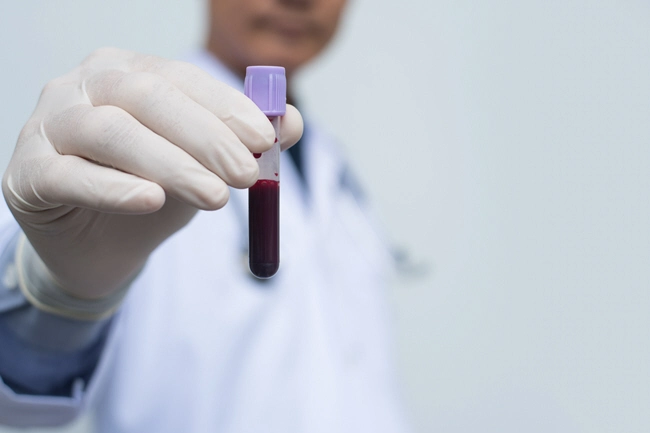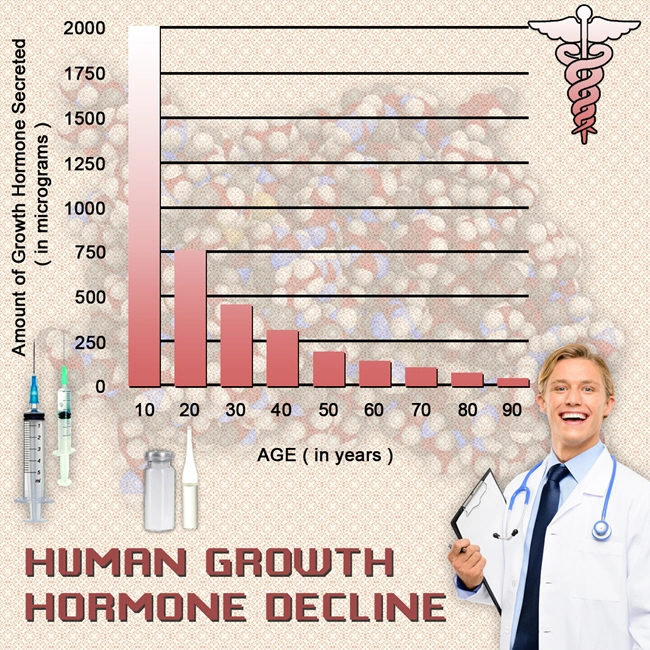
Understanding Prostate Cancer
Prostate cancer remains a significant health concern for American men, being the second most common cancer among them. The prostate, a small gland located below the bladder and in front of the rectum, plays a crucial role in male reproductive health. When cells in the prostate grow uncontrollably, they can lead to the development of prostate cancer. Early detection and understanding of treatment options, including surgery, are essential for managing this disease effectively.
The Role of Surgery in Prostate Cancer Treatment
Surgery is a primary treatment option for prostate cancer, particularly when the disease is confined to the prostate gland. The most common surgical procedure is a radical prostatectomy, which involves the complete removal of the prostate gland. This approach is often recommended for men with early-stage prostate cancer who are in good health and have a life expectancy of at least 10 years.
Types of Prostatectomy
There are several types of prostatectomy, each with its own approach and considerations. The retropubic prostatectomy involves an incision in the lower abdomen, allowing the surgeon to access the prostate directly. The perineal prostatectomy, on the other hand, involves an incision between the scrotum and anus. Additionally, laparoscopic and robotic-assisted prostatectomies use smaller incisions and advanced technology to minimize recovery time and improve precision.
Benefits and Risks of Prostate Cancer Surgery
The primary benefit of prostate cancer surgery is the potential for a cure, especially when the cancer is detected early. Removing the prostate gland can eliminate the cancer and prevent its spread to other parts of the body. However, like any surgical procedure, prostatectomy carries risks, including infection, bleeding, and potential complications related to anesthesia.
Post-Surgery Considerations
After a prostatectomy, patients may experience side effects such as urinary incontinence and erectile dysfunction. These side effects can be temporary or permanent, depending on individual factors and the extent of the surgery. Rehabilitation and support from healthcare professionals can help manage these issues and improve quality of life post-surgery.
Choosing the Right Treatment
Deciding on surgery as a treatment for prostate cancer involves a thorough discussion with healthcare providers. Factors such as the stage of the cancer, the patient's overall health, and personal preferences play a crucial role in this decision. It's important for men to be informed about all available treatment options, including surgery, radiation therapy, and active surveillance, to make the best choice for their specific situation.
The Importance of Regular Screening
Regular screening for prostate cancer is vital for early detection and effective treatment. The American Cancer Society recommends that men discuss the potential benefits and limitations of prostate cancer screening with their healthcare provider starting at age 50, or earlier for those at higher risk. Early detection can significantly increase the chances of successful treatment, including surgical options.
Conclusion
Prostate cancer surgery, particularly radical prostatectomy, remains a cornerstone of treatment for American men diagnosed with this disease. Understanding the benefits, risks, and post-surgery considerations is crucial for making informed decisions about treatment. By prioritizing regular screening and engaging in open discussions with healthcare providers, men can take proactive steps toward managing their prostate health and improving their overall well-being.
Contact Us Today For A Free Consultation
Dear Patient,
Once you have completing the above contact form, for security purposes and confirmation, please confirm your information by calling us.
Please call now: 1-800-380-5339.
Welcoming You To Our Clinic, Professor Tom Henderson.

- Prostate Health in Aging American Men: Understanding Conditions and Maintaining Wellness [Last Updated On: March 4th, 2025] [Originally Added On: March 4th, 2025]
- Prostate Health: Key Foods to Reduce Cancer Risk and Promote Wellness [Last Updated On: March 17th, 2025] [Originally Added On: March 17th, 2025]
- Family History and Prostate Health: Understanding Genetic Risks and Early Detection [Last Updated On: March 18th, 2025] [Originally Added On: March 18th, 2025]
- Prostate Health and Heart Disease: Vital Connections for American Men's Health [Last Updated On: March 18th, 2025] [Originally Added On: March 18th, 2025]
- Prostate Cancer Survivorship: Navigating Life After Treatment for American Men [Last Updated On: March 19th, 2025] [Originally Added On: March 19th, 2025]
- Exercise Strategies for Enhancing Prostate Health in American Males [Last Updated On: March 19th, 2025] [Originally Added On: March 19th, 2025]
- Prostate Cancer's Psychological Impact on American Men: Diagnosis to Survivorship [Last Updated On: March 19th, 2025] [Originally Added On: March 19th, 2025]
- Prostate Cancer Screening: Balancing Benefits and Risks with Informed Decision-Making [Last Updated On: March 19th, 2025] [Originally Added On: March 19th, 2025]
- Prostate Health: Understanding Symptoms, Seeking Care, and Lifestyle Management [Last Updated On: March 20th, 2025] [Originally Added On: March 20th, 2025]
- Prostate Cancer Treatments: Understanding and Managing Side Effects in American Men [Last Updated On: March 20th, 2025] [Originally Added On: March 20th, 2025]
- Benign Prostatic Hyperplasia: Symptoms, Causes, and Management for American Men [Last Updated On: March 21st, 2025] [Originally Added On: March 21st, 2025]
- Chronic Stress and Prostate Health: Risks and Management Strategies for American Men [Last Updated On: March 21st, 2025] [Originally Added On: March 21st, 2025]
- Prostate Health: Risks, Diet, Exercise, and Early Detection Strategies for American Men [Last Updated On: March 21st, 2025] [Originally Added On: March 21st, 2025]
- Prostate Cancer's Impact on Fertility: Treatments and Preservation Strategies [Last Updated On: March 22nd, 2025] [Originally Added On: March 22nd, 2025]
- Exercise and Diet: Enhancing Prostate Health in American Males [Last Updated On: March 22nd, 2025] [Originally Added On: March 22nd, 2025]
- Alcohol Consumption's Impact on Prostate Health: Risks and Moderation Guidelines [Last Updated On: March 22nd, 2025] [Originally Added On: March 22nd, 2025]
- Radiation Therapy: A Key Treatment for Prostate Cancer in American Males [Last Updated On: March 22nd, 2025] [Originally Added On: March 22nd, 2025]
- Hormone Therapy's Role in Managing Prostate Cancer for American Men [Last Updated On: March 23rd, 2025] [Originally Added On: March 23rd, 2025]
- Vitamin D's Role in Prostate Health: Insights for American Males [Last Updated On: March 23rd, 2025] [Originally Added On: March 23rd, 2025]
- Prostate Cancer: Navigating Diagnosis and Support for American Men [Last Updated On: March 23rd, 2025] [Originally Added On: March 23rd, 2025]
- Immunotherapy Revolutionizing Prostate Cancer Treatment for American Men [Last Updated On: March 24th, 2025] [Originally Added On: March 24th, 2025]
- Pesticides and Prostate Health: Risks and Mitigation Strategies for American Males [Last Updated On: March 24th, 2025] [Originally Added On: March 24th, 2025]
- Active Surveillance: Managing Low-Risk Prostate Cancer in American Men [Last Updated On: March 24th, 2025] [Originally Added On: March 24th, 2025]
- Targeted Therapy: A New Hope in Prostate Cancer Treatment for American Men [Last Updated On: March 24th, 2025] [Originally Added On: March 24th, 2025]
- Avoiding Key Foods to Maintain Prostate Health in American Men [Last Updated On: March 24th, 2025] [Originally Added On: March 24th, 2025]
- Brachytherapy: Targeted Treatment for Prostate Cancer in American Men [Last Updated On: March 25th, 2025] [Originally Added On: March 25th, 2025]
- HIFU: A Promising Non-Invasive Treatment for Prostate Cancer in American Men [Last Updated On: March 25th, 2025] [Originally Added On: March 25th, 2025]
- Omega-3 Fatty Acids: A Key to Prostate Health in American Males [Last Updated On: March 25th, 2025] [Originally Added On: March 25th, 2025]
- Proton Therapy: A Targeted Approach to Prostate Cancer Treatment in American Men [Last Updated On: March 25th, 2025] [Originally Added On: March 25th, 2025]
- Chemotherapy's Role and Impact on American Men with Prostate Cancer [Last Updated On: March 25th, 2025] [Originally Added On: March 25th, 2025]
- Antioxidants and Prostate Health: A Comprehensive Guide for American Men [Last Updated On: March 25th, 2025] [Originally Added On: March 25th, 2025]
- Sleep Quality's Impact on Prostate Health: A Vital Connection for American Men [Last Updated On: March 25th, 2025] [Originally Added On: March 25th, 2025]
- Environmental Factors and Their Impact on Prostate Health in American Males [Last Updated On: March 25th, 2025] [Originally Added On: March 25th, 2025]
- Lycopene: A Key Nutrient for Prostate Health in American Men [Last Updated On: March 25th, 2025] [Originally Added On: March 25th, 2025]
- Prostate Cancer Stages and Grades: A Comprehensive Guide for American Men [Last Updated On: March 25th, 2025] [Originally Added On: March 25th, 2025]
- Chronic Inflammation's Impact on Prostate Health in American Males: Prevention and Awareness [Last Updated On: March 25th, 2025] [Originally Added On: March 25th, 2025]
- Heavy Metals and Prostate Health: Risks, Impacts, and Preventive Measures [Last Updated On: March 25th, 2025] [Originally Added On: March 25th, 2025]
- CyberKnife: Advanced Non-Invasive Treatment for Prostate Cancer in American Men [Last Updated On: March 26th, 2025] [Originally Added On: March 26th, 2025]
- Prostate and Bone Health: Vital Connections and Management Strategies for American Men [Last Updated On: March 26th, 2025] [Originally Added On: March 26th, 2025]
- Palliative Care's Vital Role in Enhancing Prostate Cancer Patients' Quality of Life [Last Updated On: March 27th, 2025] [Originally Added On: March 27th, 2025]
- Hydration's Vital Role in Prostate Health for American Males [Last Updated On: March 27th, 2025] [Originally Added On: March 27th, 2025]
- Prostate Cancer and Cryotherapy: A Minimally Invasive Treatment Option for American Men [Last Updated On: March 27th, 2025] [Originally Added On: March 27th, 2025]
- Vitamin E's Role in Prostate Health: Benefits and Considerations for American Males [Last Updated On: March 27th, 2025] [Originally Added On: March 27th, 2025]
- Photodynamic Therapy: A Promising, Less Invasive Treatment for Prostate Cancer in American Men [Last Updated On: March 27th, 2025] [Originally Added On: March 27th, 2025]
- Selenium's Role in Prostate Health: Benefits and Dietary Sources [Last Updated On: March 28th, 2025] [Originally Added On: March 28th, 2025]
- Plastics' Impact on Prostate Health: BPA, Phthalates, and Preventive Measures [Last Updated On: March 28th, 2025] [Originally Added On: March 28th, 2025]
- Zinc's Vital Role in Prostate Health for American Males: Benefits and Sources [Last Updated On: March 28th, 2025] [Originally Added On: March 28th, 2025]
- Green Tea Benefits for Prostate Health in American Males: Prevention and Management [Last Updated On: March 28th, 2025] [Originally Added On: March 28th, 2025]
- Chemoprevention Strategies for Prostate Cancer Prevention in American Men [Last Updated On: March 28th, 2025] [Originally Added On: March 28th, 2025]
- Air Pollution's Impact on Prostate Health: Risks and Mitigation Strategies [Last Updated On: March 29th, 2025] [Originally Added On: March 29th, 2025]
- Prostate Cancer Management: Understanding Watchful Waiting for Low-Risk Patients [Last Updated On: March 30th, 2025] [Originally Added On: March 30th, 2025]
- Cruciferous Vegetables: Enhancing Prostate Health in American Males [Last Updated On: April 1st, 2025] [Originally Added On: April 1st, 2025]
- EMF Exposure and Prostate Health: Risks and Mitigation Strategies for American Males [Last Updated On: April 2nd, 2025] [Originally Added On: April 2nd, 2025]
- Robotic Surgery for Prostate Cancer: Benefits, Procedure, and Recovery Insights [Last Updated On: April 4th, 2025] [Originally Added On: April 4th, 2025]
- Focal Therapy: A Promising, Less Invasive Option for Prostate Cancer in American Men [Last Updated On: April 4th, 2025] [Originally Added On: April 4th, 2025]
- Endocrine Disruptors and Prostate Health: Risks and Mitigation Strategies for American Males [Last Updated On: April 7th, 2025] [Originally Added On: April 7th, 2025]
- Laparoscopic Surgery: A Minimally Invasive Option for Prostate Cancer Treatment [Last Updated On: April 8th, 2025] [Originally Added On: April 8th, 2025]
- Salvage Therapy: A Critical Approach to Managing Prostate Cancer in American Men [Last Updated On: April 8th, 2025] [Originally Added On: April 8th, 2025]
- Industrial Chemicals' Impact on Prostate Health: Risks and Prevention Strategies [Last Updated On: April 8th, 2025] [Originally Added On: April 8th, 2025]
- Flaxseed Benefits for Prostate Health: Cancer Prevention and BPH Relief [Last Updated On: April 10th, 2025] [Originally Added On: April 10th, 2025]
- Soy Isoflavones: A Dietary Approach to Enhancing Prostate Health in American Males [Last Updated On: April 10th, 2025] [Originally Added On: April 10th, 2025]
- Prostate Health Management: Balancing Pharmaceuticals and Quality of Life in American Males [Last Updated On: April 10th, 2025] [Originally Added On: April 10th, 2025]
- Pomegranate's Role in Enhancing Prostate Health: Nutritional Benefits and Research Insights [Last Updated On: April 12th, 2025] [Originally Added On: April 12th, 2025]
- Palliative Surgery for Advanced Prostate Cancer: Benefits, Risks, and Holistic Care [Last Updated On: April 12th, 2025] [Originally Added On: April 12th, 2025]
- Neoadjuvant Therapy in Prostate Cancer: Benefits, Side Effects, and Future Directions [Last Updated On: April 12th, 2025] [Originally Added On: April 12th, 2025]
- Adjuvant Therapy in Prostate Cancer: Enhancing Outcomes and Quality of Life [Last Updated On: April 13th, 2025] [Originally Added On: April 13th, 2025]
- Bisphosphonates: Enhancing Bone Health in Metastatic Prostate Cancer Management [Last Updated On: April 13th, 2025] [Originally Added On: April 13th, 2025]
- Denosumab: A Promising Treatment for Prostate Cancer in American Men [Last Updated On: April 14th, 2025] [Originally Added On: April 14th, 2025]
- RANK Ligand Inhibitors: A Promising Therapy for Prostate Cancer Bone Metastases [Last Updated On: April 15th, 2025] [Originally Added On: April 15th, 2025]
- Heavy Physical Work's Impact on Prostate Health: Risks and Mitigation Strategies [Last Updated On: April 15th, 2025] [Originally Added On: April 15th, 2025]
- Radium-223: A Targeted Therapy for Advanced Prostate Cancer in American Men [Last Updated On: April 16th, 2025] [Originally Added On: April 16th, 2025]
- Abiraterone: Revolutionizing Prostate Cancer Treatment in American Men [Last Updated On: April 16th, 2025] [Originally Added On: April 16th, 2025]
- Enzalutamide: A Key Advance in Prostate Cancer Treatment for American Men [Last Updated On: April 16th, 2025] [Originally Added On: April 16th, 2025]
- Ginger's Role in Supporting Prostate Health: Benefits and Dietary Integration [Last Updated On: April 16th, 2025] [Originally Added On: April 16th, 2025]
- Turmeric's Potential Benefits for Prostate Health in American Males [Last Updated On: April 17th, 2025] [Originally Added On: April 17th, 2025]
- Shift Work's Impact on Prostate Health: Risks and Mitigation Strategies for American Males [Last Updated On: April 18th, 2025] [Originally Added On: April 18th, 2025]
- Prostate Health Risks and Mitigation Strategies for Long-Haul Truckers [Last Updated On: April 19th, 2025] [Originally Added On: April 19th, 2025]








